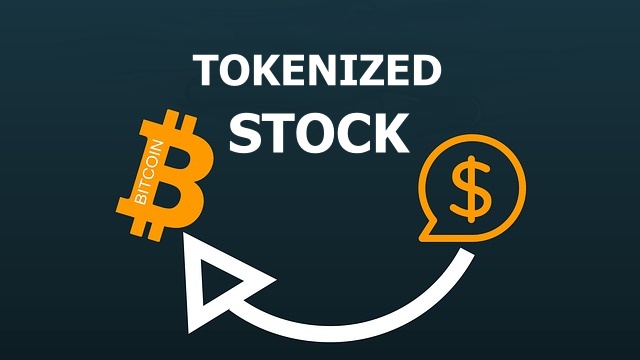What Are Tokenized Stocks? 5 Best Platforms to Trade Tokenized Stocks
Tokenized stocks represent a groundbreaking evolution in the finance sector, bridging traditional stock markets with the dynamic realm of cryptocurrencies.
With these tokenized assets, you’re not just investing; you’re participating in a financial revolution.
In fact, there are tons of DApps running on the blockchain to do all the financial activities; many named it the DiFi (Decentralized Finance) movement.
If you invested or traded in traditional stocks, you know there are certain limitations; such as you can only trade at specific times and in certain jurisdictions.
Gone are the days of being restricted by banking hours or geographical boundaries. Thanks to blockchain technology, anyone, anywhere in the world, can trade tokenized real-world assets like securities (for example stocks and bonds), commodities (such as gold), and other non-financial assets (such as real estate) to solve problems in traditional trading.
What Are Tokenized Stocks?
Tokenized stocks serve as synthetic replicas of real stocks, offering a straightforward way to invest in companies like Apple, Amazon, and Tesla.
These tokenized assets seamlessly bridge traditional stock markets (such as NYSE or NASDAQ) with the crypto market (like Binance), simplifying trading for investors.
Three key features set tokenized stocks apart from traditional ones:
- Accessibility:
Trading tokenized stocks is open to anyone, anywhere in the world, unlike traditional stocks.
For example, if you live outside of the US, it’s not easy to purchase the stock of Tesla or Apple. However, suppose you have an account with any Tokenized Stock exchange like Binance, you can easily buy a Tesla token (One TSLA token represents one equity share of Tesla). - Divisibility:
Because the shares are tokenized, it’s possible to buy a fractionated portion of the stock.
For example, at the time of writing this post, Tesla’s stock price is above $171, but with Tesla’s Tokenized Stock, you can buy a tenth of a share for around $17 or any amount your budget allows. - Availability:
Unlike traditional markets with limited trading hours, tokenized stocks can be traded 24/7, offering flexibility to investors
How Tokenized Stocks Work?
The process of tokenizing real-world stocks varies between centralized and decentralized crypto exchanges.
In a centralized exchange, investment institutions and custodians (any brokerage firm working as the third party) are involved in the process.
Investment institutions purchase the stocks and keep them as the reserve with the custodian, based on reserve shares, tokens are issued through a blockchain and listed on the crypto exchange. Once tokens are listed on an exchange, any investor can purchase these tokens and indirectly own a part of the actual equity stock kept with the custodian in reserve.
But in decentralized exchange, tokens are actual mirrors of a real-world asset (like Tesla stock), so the token is not backed up by any institution; instead, exchange users have to provide collateral to create tokenized stock.
List of Platforms Offering Tokenized Stocks.
1. Bittrex Global Exchange.
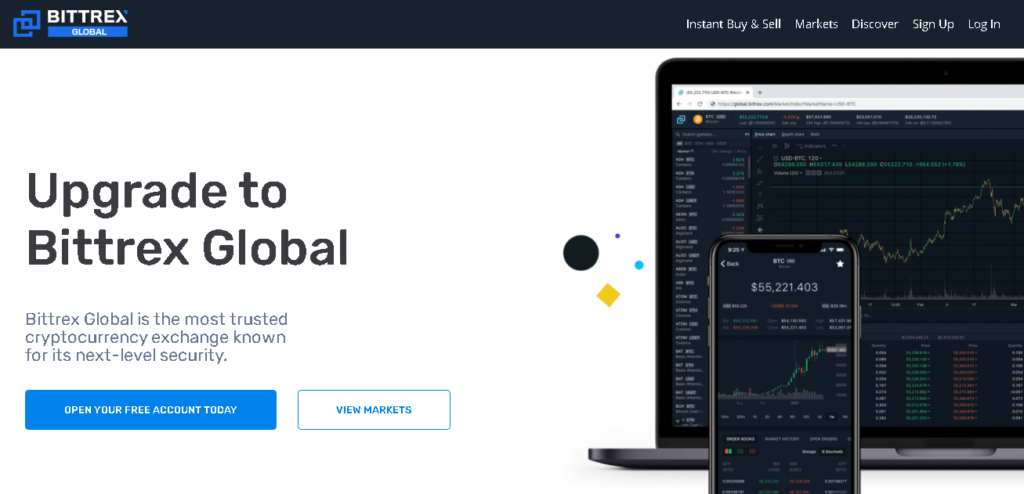
Bittrex Global has been a trusted player in the crypto exchange arena since 2014.
Since 2020, they’ve expanded their offerings to include tokenized stocks through a partnership with Digital Asset.AG, a Swiss-based asset tokenization platform custodied by licensed banks in Europe.
On the platform, you can trade more than 40+ tokenized stocks, all available 24/7.
But before using the platform, you should know some of the following rules.
- You cannot be allowed to trade on Tokenized stock if you’re from the European Union, the European Economic Area, Switzerland, and the United Kingdom. For these locations, Bittrex is planning to associate itself with the Germany-based investment institution, CM Equity.
- Tokenized stocks do not transfer any shareholder rights.
- In 24/7 trading, the liquidity of the underlying assets may vary for the day and week, and that might be reflected in the liquidity of Bittrex Global’s markets.
- For trading in tokenized stocks, the exchange charges a fee that is equivalent to any similar trade in the spot market.
2. Currency.com.
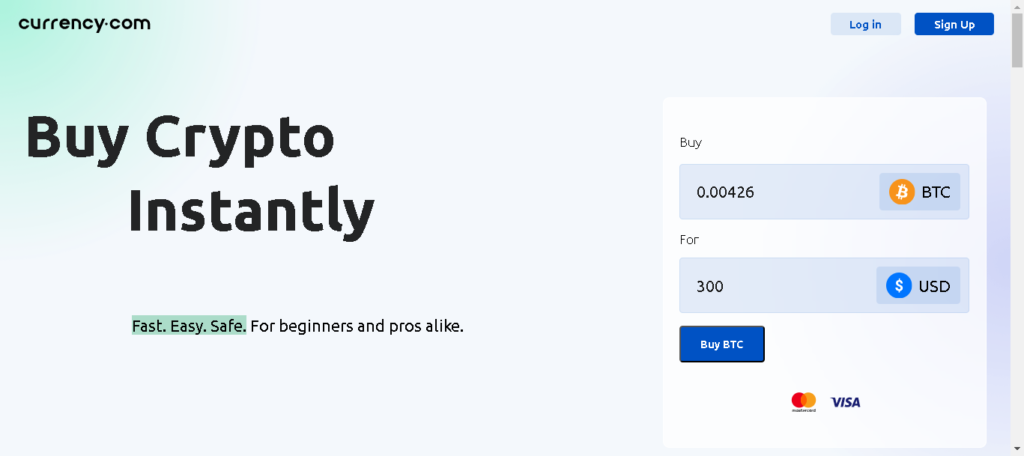
Established in 2019 Curency.com is a centralized exchange offering crypto trading services.
The platform mainly deals with tokenized assets. This means that there isn’t a Currency.com spot market in the traditional sense, although this type of trading is also available. The platform lists over 2,000 tokenized securities. There are six market types available:
- Bonds
- Commodities
- Cryptocurrencies
- Currencies
- Indices
- Shares
Unfortunately, Currency.com needed KYC approval for registration and the exchange only operates in Europe (Minsk), North America (New York), and Asia (Singapore), so Didn’t get first-hand experience with the platform.
3. Bitpanda.
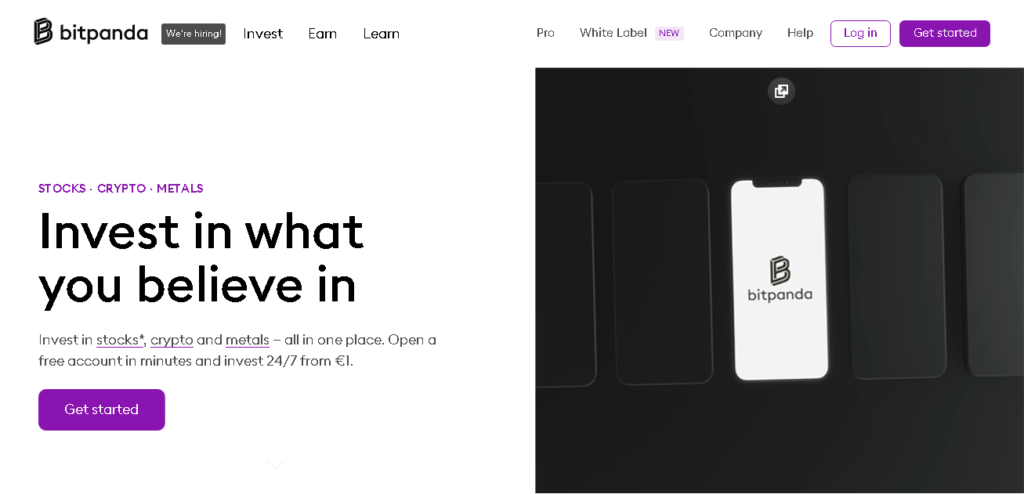
As one of Europe’s pioneering centralized exchanges, Bitpanda provides a wide range of trading options, including tokenized stocks, ETFs, and commodities such as Silver, Gold, Platinum, and Palladium.
Like all the centralized exchanges Bitpanda custodied all the ETFs and stocks in Bank and Bitpanda’s buy and sell orders are executed by their exchange partner.
Here are the features of Bitpanda Tokenized Stocks.
- Bitpanda stocks are tradeable 24/7.
- Before doing any trade under EU regulation (AML5), you must verify a Bitpanda account.
- There is no transaction fee charged by the exchange. However, a spread is applied over the buy and sell price.
- Holding tokenized stocks does not transfer any shareholder rights to you even though you’re eligible to receive dividends declared on the equity stocks.
4. Mirror.Finance.
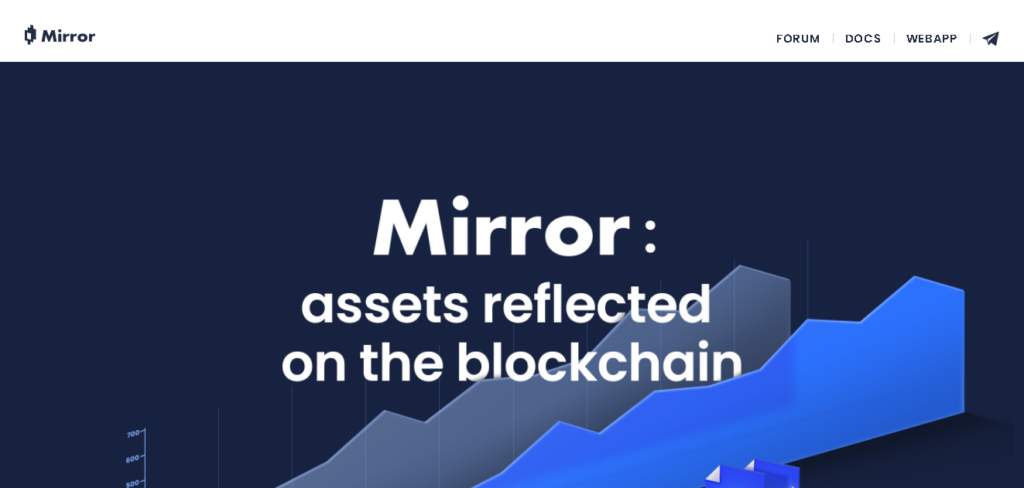
Mirror.Finance operates as a DeFi protocol, utilizing smart contracts to generate synthetic versions of real-world assets on the Terra and Ethereum blockchains.
These synthetic assets, known as mAssets, mirror the prices of their underlying assets. To maintain this peg, a decentralized price oracle to update prices every 30 seconds.
You can create a mAsset by locking up 150% of the current asset value in UST(Terra network stablecoin) or other mAssets as collateral; this process is known as Collateralized Debt Position (CDP). This regulates minting, as collateral can be liquidated if positions go under the minimum collateral ratio.
To redeem a mAsset and receive the collateral, you must burn the same amount of mAssets issued when opening the CDP.
If you don’t want to create mAsset, then you can trade them on the decentralized exchanges supported by Mirror.
Here are some features of mAsset.
- mAssets are tradeable 24/7.
- No KYC is needed.
- Completely decentralized.
- The trading fee is 0.3% of the transaction value.
- Holding or Creating mAssets doesn’t transfer any shareholder rights.
5. Synthetix Exchange.
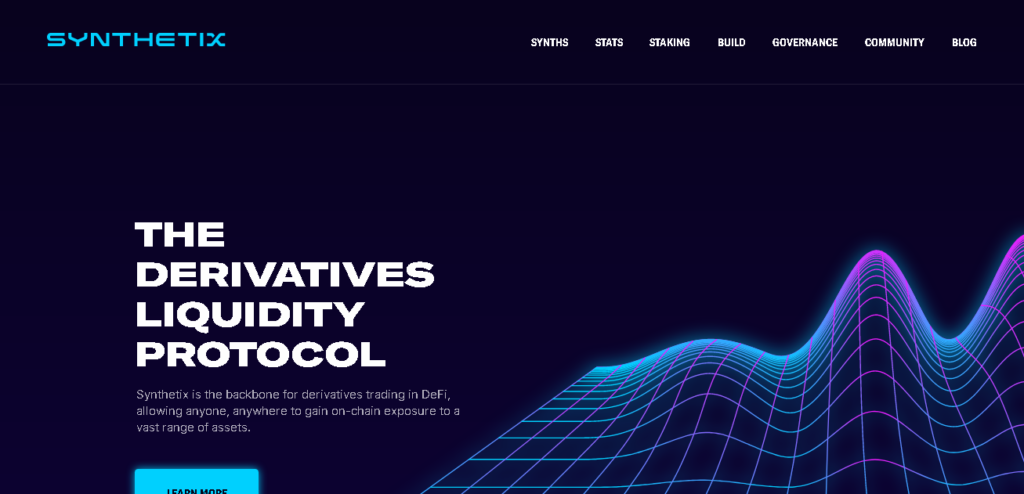
Synthetix operates as an Ethereum-based DeFi platform facilitating the creation and trading of synthetic assets.
Synthetix works the same as Mirror; they let you mint and trade synthetic assets (here they are called Synth) but using their own Ethereum token SNX.
To mint any asset, the Synthetix system requires a collateralization rate of 750%. For example, if you want to mint sTESLA worth $100, you must deposit SNX tokens worth $750 as collateral.
Feature of Synth.
- Fully decentralized.
- No KYC is needed.
- Synths are tradable 24/7.
- The trading fee is 0.3% of the transaction value.
- Holding any synths does not transfer you any shareholder rights.
Conclusion.
You now possess comprehensive information about tokenized stocks, including their functionalities, trading benefits, and the top platforms for engaging in tokenized stock trading.
However, it’s important to acknowledge some drawbacks:
- Tokenized stocks do not transfer any shareholder rights to you. Such as voting privileges or the ability to attend annual general meetings.
- Tokenized stock is only tradeable on the exchange where they were created or any supported exchanges.
- There can be additional KYC requirements from the exchange or the custodian of assets.
You have to consider all the benefits and drawbacks of tokenized assets before making any investment.
Also, it is better to do your own research before choosing any of the listed platforms or outside of this post.
